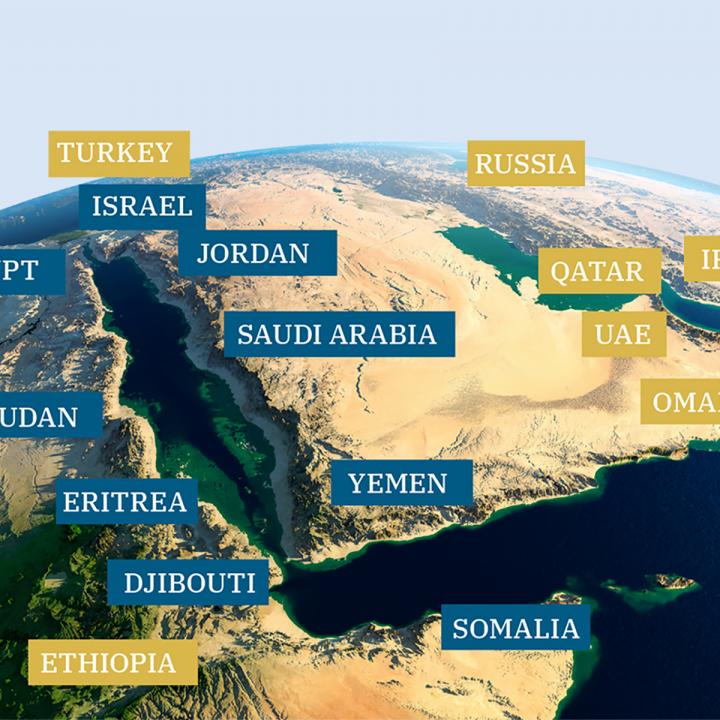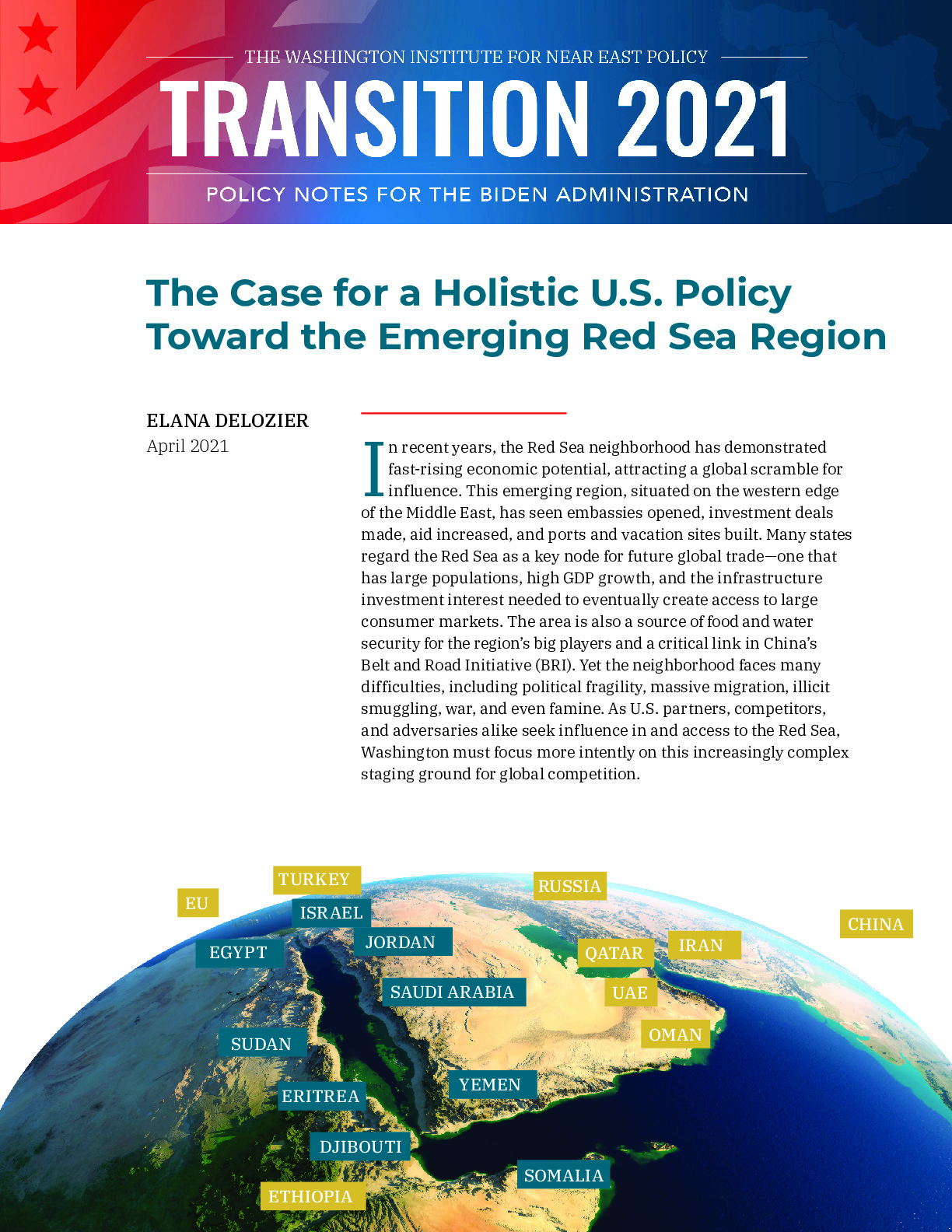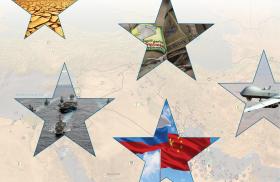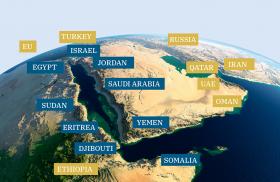
- Policy Analysis
- Policy Notes 102
The Case for a Holistic U.S. Policy Toward the Emerging Red Sea Region

Part of a series: Transition 2021
or see Part 1: The Coming Iran Nuclear Talks: Openings and Obstacles
To promote stability and other U.S. interests, Washington must reshape its approach to this increasingly complex staging ground for global competition.
In the eighth in a series of TRANSITION 2021 memos examining the Middle East and North Africa, Elana DeLozier makes the case for a holistic U.S. policy toward the Red Sea.
The March 23 grounding of a 1,300-foot container ship in the Suez Canal drew urgent attention to the role Red Sea chokepoints play in supplying goods to global markets. For states along the littoral, disruptions to shipping constitute just one among many perils, with others including political fragility, massive migration, illicit smuggling, and war. Yet in recent years, global players have also flocked to the Red Sea to pursue economic and strategic opportunities, given the area’s large national populations, high GDP growth, and burgeoning development in sectors from port infrastructure to tourism.
As the author explains, any successful U.S. approach to this complex set of policy challenges must begin by recognizing the Red Sea as a distinct emerging region. Beyond this, she writes, “such a policy would take an organizing approach to U.S. partner countries and contend with the very real challenges posed by the diplomatic and military ‘seams’ running down the Red Sea that have traditionally split Middle East policy from Africa policy in the State and Defense Departments.”
In the coming weeks, TRANSITION 2021 memos by Washington Institute experts will address the broad array of issues facing the Biden-Harris administration in the Middle East. These range from thematic issues, such as the region’s strategic position in the context of Great Power competition and how to most effectively elevate human rights and democracy in Middle East policy, to more discrete topics, from Arab-Israel peace diplomacy to Red Sea security to challenges and opportunities in northwest Africa. Taken as a whole, this series of memos will present a comprehensive approach for advancing U.S. interests in security and peace in this vital but volatile region.
This project was supported by Tony and Linda Rubin, patrons of the author’s fellowship; the Bernstein family, supporters of the Program on Gulf and Energy Policy at The Washington Institute; and other donors to the Institute’s Transition 2021 series.





